On April 23…
“We, of course, are saddened indeed by the events in Indochina. But these events, tragic as they are, portend neither the end of the world nor of America’s leadership in the world … We can and we should help others to help themselves. But the fate of responsible men and women everywhere, in the final decision, rests in their own hands, not in ours.”
~President Gerald Ford
Speaking at Tulane University
April 23, 1975
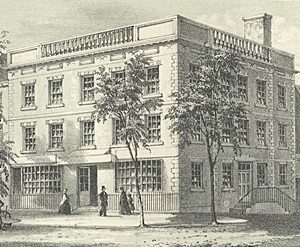
1798 – The Samuel Osgood House, located at #1 Cherry Street (now Dover Street) in Lower Manhattan, welcomed a new tenant.
President-elect George Washington and his wife moved into the home which served as the first executive mansion.
Congress rented it for Washington’s use, and the President-Elect moved in a week before his April 30, 1789, inauguration as the first President of the United States.
In addition to living quarters, the Osgood House contained the President’s third-floor private office and the public business office, making it the first seat of the executive branch of the federal government during New York City’s two-year term as the national capital.
Washington vacated it after ten months when a larger residence became available.
The Osgood House was demolished in 1856.

1940 – The Rhythm Club fire at a dance hall in Natchez, Mississippi killed 209 people.
The fire started near the main entrance door and fed by Spanish moss that had been draped over interior’s rafters as a decoration, quickly engulfed the structure.
To ensure there were no bugs in the decorative moss, it had been sprayed with FLIT, a petroleum-based insecticide. Under the dry conditions, flammable methane gas was generated from the moss.
The windows had been boarded up to prevent outsiders from viewing or listening to the music, and as a result the crowd of over 700 was trapped.
More than 300 people struggled to get out after the blaze began by pressing their way to the back door, which was padlocked and boarded shut.
Due to the walls being made of metal, and little ventilation for the heat or the smoke, the walls held the heat in the club like an oven. When water from the fire hoses hit the metal siding, it created steam that scalded many victims.
The building was destroyed within an hour.
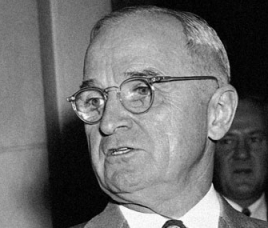
1945 – Less than two weeks after taking over as president after the death of Franklin Roosevelt, Harry S. Truman gave a tongue-lashing to Soviet Foreign Minister Vyacheslav Molotov.
Just before his death, Roosevelt met with Russian leader Joseph Stalin and British Prime Minister Winston Churchill at Yalta to discuss the postwar situation.
Agreements made during the meeting left the Soviets in de facto control of Eastern Europe in exchange for Soviet promises to hold “democratic” elections in Poland.
When Molotov arrived at the White House for a meeting with the new president, Truman immediately lashed out at him “in words of one syllable,” as the president later recalled.
As Molotov listened incredulously, Truman charged that the Soviets were breaking their agreements and that Stalin needed to keep his word.
Molotov indignantly declared that he had never been talked to in such a manner and stormed out of the meeting.
Truman was delighted with his own performance, telling one friend that he gave the Soviet official “the straight one-two to the jaw.”
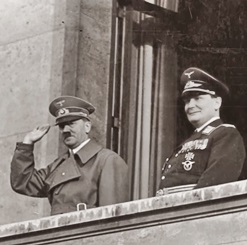
1945 – In June 1941, Adolf Hitler had issued a secret decree which formally named Hermann Goering his successor in the event of his death.
It also gave Goering the power to act as Hitler’s deputy with full freedom of action in the event Hitler ever lost his freedom of action – either by way of incapacity, disappearance or abduction.
On this date – with the Third Reich crumbling and nearing defeat – Goering sent a carefully worded telegram to Adolf Hitler, asking permission to assume leadership in accordance with the 1941 decree.
Goering added that if Hitler did not reply by 22:00 that night, he would assume Hitler had lost his freedom of action and would assume leadership of the Reich.
The telegram was intercepted by Martin Bormann – the Chief of the Nazi Party Chancellery and Hitler’s Private Secretary – who convinced Hitler that Goering was a traitor. Bormann argued that Goering’s telegram was not a request for permission to act as Hitler’s deputy, but a demand to resign or be overthrown.
Hitler sent a reply to Goering – prepared with Bormann’s help – rescinding the 1941 decree and threatening him with execution for high treason unless he immediately resigned from all of his offices.
Goering duly resigned.
And while he dealt with that, Hitler wasn’t aware that at the same time, another “loyal and dedicated” Nazi was making plans of his own…
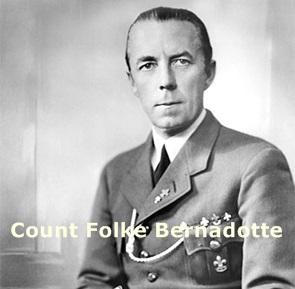
1945 – SS chief Heinrich Himmler secretly met with Count Folke Bernadotte of Sweden, asking him to act as an intermediary for a surrender offer to the Western Allies.
Representing himself as the provisional leader of Germany, Himmler claimed that Hitler would be dead within the next few days.
Hoping that the British and Americans would fight the Soviets alongside what remained of the Wehrmacht, Himmler asked Bernadotte to inform General Dwight Eisenhower that Germany wished to surrender to the West.
Bernadotte asked Himmler to put his proposal in writing, and Himmler obliged. And he did more than that.
Himmler announced that Bernadotte could take all the Western Allied prisoners from the woman’s camp at Ravensbruck, as well as all the Jews.
At one fell swoop, Bernadotte had saved thousands.
The Himmler story continues on April 28…
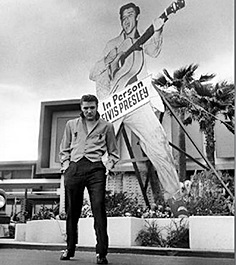
1956 – Elvis Presley, accompanied by Bill Black and Scotty Moore, made his Las Vegas debut at the New Frontier Hotel.
He was scheduled for two weeks but the gig was cut in half due to a lack of interest.
Negative reviews by critics, such as the one by Bill Willard, writing for the Las Vegas Sun, didn’t help.
“The powers of the New Frontier are pitching the local premiere of Elvis Presley, but the pull will be in Freddy Martin’s smooth music making and word-of-mouth cheering for Shecky Greene’s unbridled comedy. For the teen-agers, the long, tall Memphis lad is a whiz; for the average Vegas spender or showgoer, a bore. His musical sound with a combo of three is uncouth, matching to a great extent the lyric content of his nonsensical songs.“

1956 – Bob Dylan recorded Masters of War at Studio A of Columbia Recording Studios in New York City.
Dylan didn’t consider it an “anti-war” song. He said he was speaking more specifically to the world’s power brokers and the way they manufacture international conflict.
“I’ve never really written anything like that before. I don’t sing songs which hope people will die, but I couldn’t help it with this one. The song is a sort of striking out, a reaction to the last straw, a feeling of what can you do?”
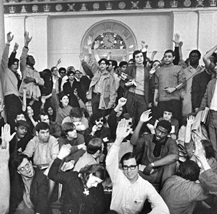
1968 – Student protesters at Columbia University in New York City took over administration buildings and shut down the university.
The protests erupted after students discovered links between Columbia and the Institute for Defense Analyses, a weapons research think tank affiliated with the U.S. Department of Defense.
After a seven-day standoff, they ultimately won their goals of stopping the building of an allegedly “racist gym” on public land in Morningside Park, severing ties with the Institute for Defense Analyses, gaining amnesty for demonstrators and, not incidentally, the early resignations of their enemies, Columbia’s president, Grayson L. Kirk; and its provost, David B. Truman.
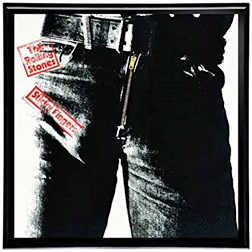
1971 – The Rolling Stones released the Sticky Fingers album.
The first release on the band’s new label (Rolling Stones Records), it achieved triple platinum certification in the U.S. with songs such as Brown Sugar, Dead Flowers, Wild Horses and Can’t You Hear Me Knocking.
Sticky Fingers spent five weeks at the #1 spot on the British charts in May 1971. The album hit #1 in the U.S. within days of release and stayed there for four weeks.
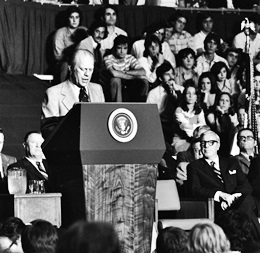
1975 – In a speech at Tulane University, President Gerald Ford said the Vietnam War was finished as far as America was concerned.
“Today, Americans can regain the sense of pride that existed before Vietnam. But it cannot be achieved by re-fighting a war.”
This was devastating news to the South Vietnamese, who were desperately pleading for U.S. support as the North Vietnamese surrounded Saigon for the final assault on the capital city.
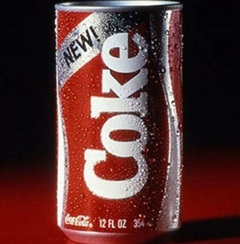
1985 – With their market share losing ground to diet soft drinks and non-cola beverages, the Coca-Cola Company took arguably one of the biggest risks in consumer goods history.
The company announced it was changing the formula for the world’s most popular soft drink, intending to re-energize its Coca-Cola brand and the cola category in its largest market, the United States.
The “New Coke” idea did not go over well.
By June 1985, The Coca-Cola Company was getting 1,500 calls a day on its consumer hotline.
People seemed to hold any Coca-Cola employee – from security officers at company headquarters to their neighbors who worked for Coke – personally responsible for the change.
Coca-Cola executives announced the return of the original formula on July 11.
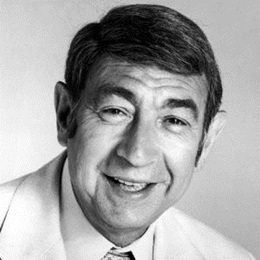
1995 – Howard Cosell, who delighted and infuriated listeners during a 30-year career as the nation’s best-known and most outspoken sports broadcasters, died of a cardiac embolism at the age of 77.
Widely known for his blustery, cocksure personality, Cosell said of himself, “Arrogant, pompous, obnoxious, vain, cruel, verbose, a showoff. There’s no question that I’m all of those things.”
To Cosell, criticism was just another form of homage. If the criticism came from other broadcasters, he always considered the source.
“There’s one thing about this business. There is no place for talent. That’s why I don’t belong. I lack mediocrity.”
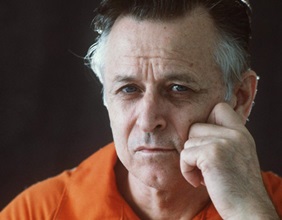
1998 – James Earl Ray, convicted for the assassination of Martin Luther King, Jr. in 1968, died at Columbia Nashville Memorial Hospital of complications due to chronic hepatitis C infection. He was 70.
His body was cremated and his ashes were flown to Ireland, the home of his maternal family’s ancestors.
Ray, who had confessed to the killing in 1969 but recanted it three days later, spent the remainder of his life unsuccessfully attempting to withdraw his guilty plea and secure a trial.
Prompted by the King family’s acceptance of some of Ray’s claims of conspiracy, United States Attorney General Janet Reno ordered a new investigation in 1998.
On June 9, 2000, the United States Department of Justice released a 150-page report rejecting allegations that there was a conspiracy to assassinate King.
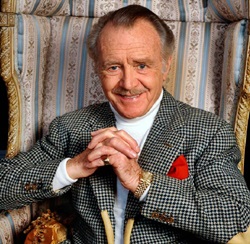
2005 – Academy Award winning actor John Mills died following a stroke at the age of 97.
He appeared in more than 120 films in a career spanning seven decades, including Swiss Family Robinson, Dunkirk, and Ryan’s Daughter, which earned him an Academy Award for Best Supporting Actor.
Mills had two daughters who became actresses; Juliet, star of television’s Nanny and The Professor, and Hayley, a Disney child star who appeared in Pollyanna, The Parent Trap and Whistle Down The Wind.
Compiled by Ray Lemire ©2020 RayLemire.com / Streamingoldies.com. All Rights Reserved.